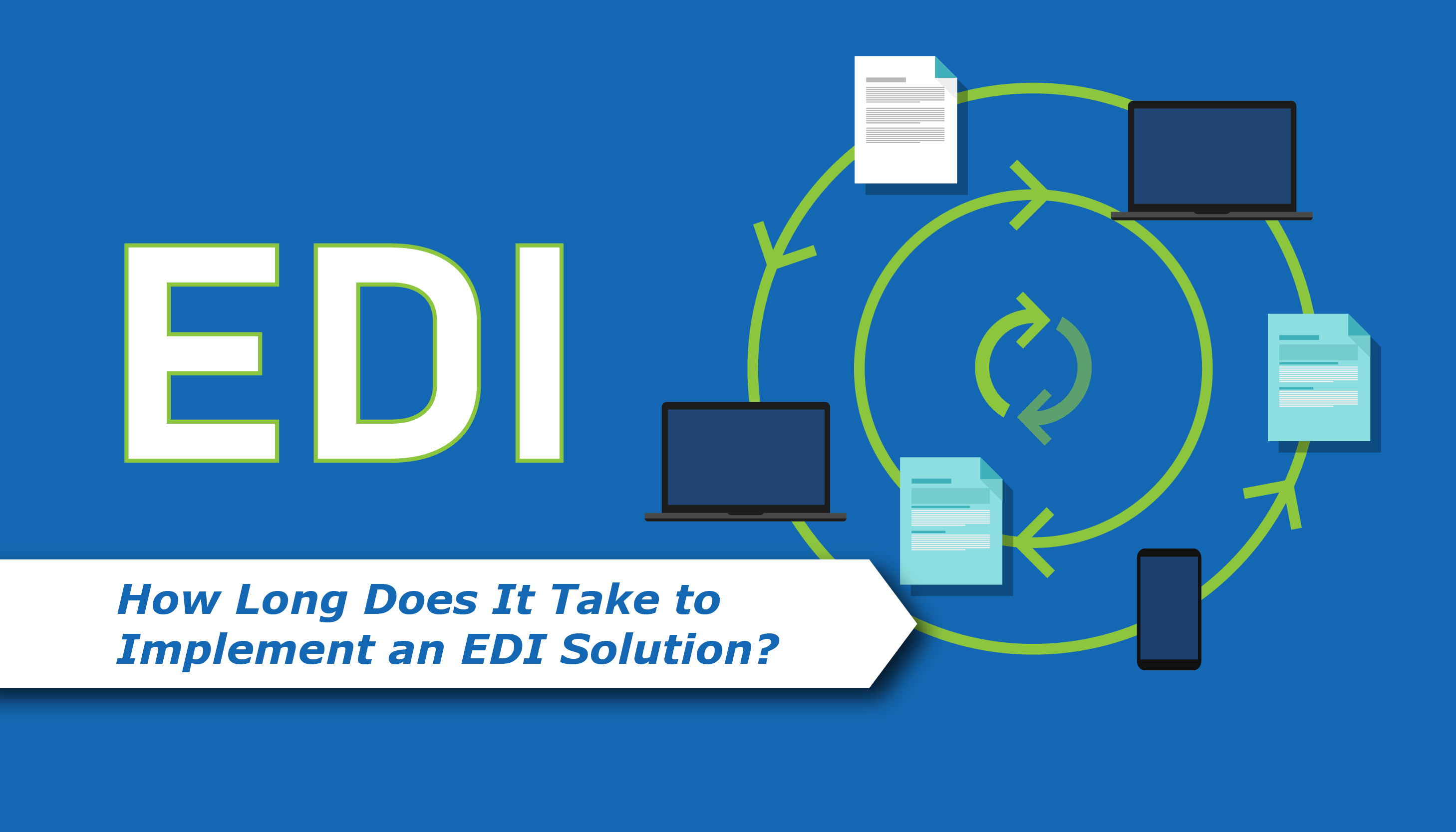- BUYER SERVICES
- SUPPLIER SERVICES
- COMPANY
- CONTACT US
- BUYER SERVICES
- SUPPLIER SERVICES
- COMPANY
- CONTACT US

Implementing an EDI (Electronic Data Interchange) solution is a significant undertaking for any business. However, it can offer substantial benefits such as cost savings, streamlined processes, and improved communication with trading partners.
However, the length of time required for EDI implementation depends on several factors, including in-house resources, trading partner responsiveness, and system requirements. In this blog post, we explore important factors to consider when determining how long an EDI implementation may take and how Edict Systems can help businesses get started with EDI quickly and easily.
At Edict Systems, each implementation is a unique project plan that examines a customer’s needs, capabilities, and requirements to help them start doing EDI as quickly as possible.
Every implementation plan comes with its own timeline that differs based on what services are needed. Whether a customer is a buying organization, supplier, in the market for partial to full EDI outsourcing, requires testing and certification, has an interest in data mapping services to replace an in-house translator, or wants to integrate EDI with an existing ERP or business system, all influence the timeline for their implementation plan.
While there’s no specific timeframe for implementing an EDI solution, Edict Systems offers services like WebEDI, which can help most suppliers start doing EDI with their customers within days, as well as ManagedEC, a fully outsourced solution for buying organizations that may take up to six months or more to set up due to its comprehensive nature and goal of eliminating in-house EDI management and translation software.
Whether you are getting started with WebEDI, ManagedEC, or any of our other EDI solutions in between, our goal is to get you started with EDI quickly and easily.
Below, you’ll find a partial list of important factors to consider when determining how long implementing an EDI solution may take. Many factors depend on in-house resources, requirements, and the responsiveness of trading partners.
Implementing an EDI solution can offer significant benefits for businesses, but the timeline for implementation varies depending on several factors. At Edict Systems, we provide a range of EDI solutions to help buying organizations and suppliers get started with EDI quickly and easily, whether they are interested in partial or full EDI outsourcing.
Learn more about our EDI solutions for buyers and suppliers and how we can help your business.